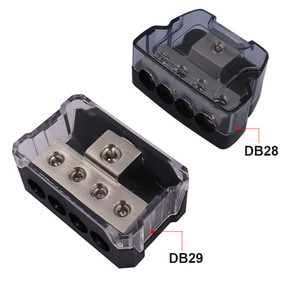Understanding Ford Capacity: An Introduction
The term Ford Capacity refers to the maximum load or weight that Ford vehicles can carry while maintaining optimal performance and safety. This crucial metric varies across different models and vehicle types, influencing how they can be utilized in business and recreation. Whether you're in the market for a new Ford truck or examining the specifics of an existing vehicle, understanding Ford Capacity is key to making informed decisions about vehicle use and purchase.
Types of Ford Capacity
Ford capacity can mainly be categorized into several types, each pertaining to different vehicle classifications:
- Truck Capacity: Ford's line of trucks, such as the F-150 or F-250, generally feature a towing and payload capacity tailored for rugged use. This allows for transportation of heavy equipment, materials, and trailers.
- Van Capacity: For instance, the Ford Transit offers various configurations that support substantial cargo weight and volume, perfect for businesses needing to transport goods.
- SUV Capacity: Models like the Ford Explorer and Expedition balance passenger comfort with significant cargo space and towing capability.
- Passenger Capacity: Every Ford vehicle is designed to accommodate a specific number of passengers, ensuring comfort while maintaining safety regulations.
Applications of Ford Capacity
The applications of Ford capacity are vast, particularly in the B2B sector:
- Construction and Heavy Hauling: Ford trucks with high payload capacities are ideal for transporting heavy tools, construction materials, and equipment to job sites.
- Logistics and Delivery Services: Companies can utilize Ford vans and trucks for effective goods transportation, ensuring timely deliveries without compromising on safety.
- Fleet Vehicle Management: Businesses often choose Ford vehicles for their reliability and capacity to manage a fleet, allowing for better logistics planning and execution.
- Outdoor Adventures: Ford SUVs and trucks serve well for recreational purposes, from camping gear to boat towing, accommodating all the necessary supplies for enthusiasts.
Function, Feature, and Design of Ford Capacity
Ford vehicles are engineered with advanced functionalities and features that cater to their capacity metrics:
- Built-In Towing Technology: Many Ford models come equipped with advanced towing features such as Pro Trailer Backup Assist, which simplifies the task of reversing trailers.
- High-Strength Steel Frames: Ford prioritizes safety and durability through high-strength steel construction, enhancing the structural capacity of their vehicles.
- Adaptive Payload Management: Modern Ford trucks often have features that assist in distributing weight evenly for optimum handling, stability, and performance under load.
- Comfort and Space Optimization: Inside the vehicle, you'll find ergonomically designed spaces that not only maximize cargo area but also ensure passenger comfort, making long journeys more enjoyable.























































 Ready to Ship
Ready to Ship